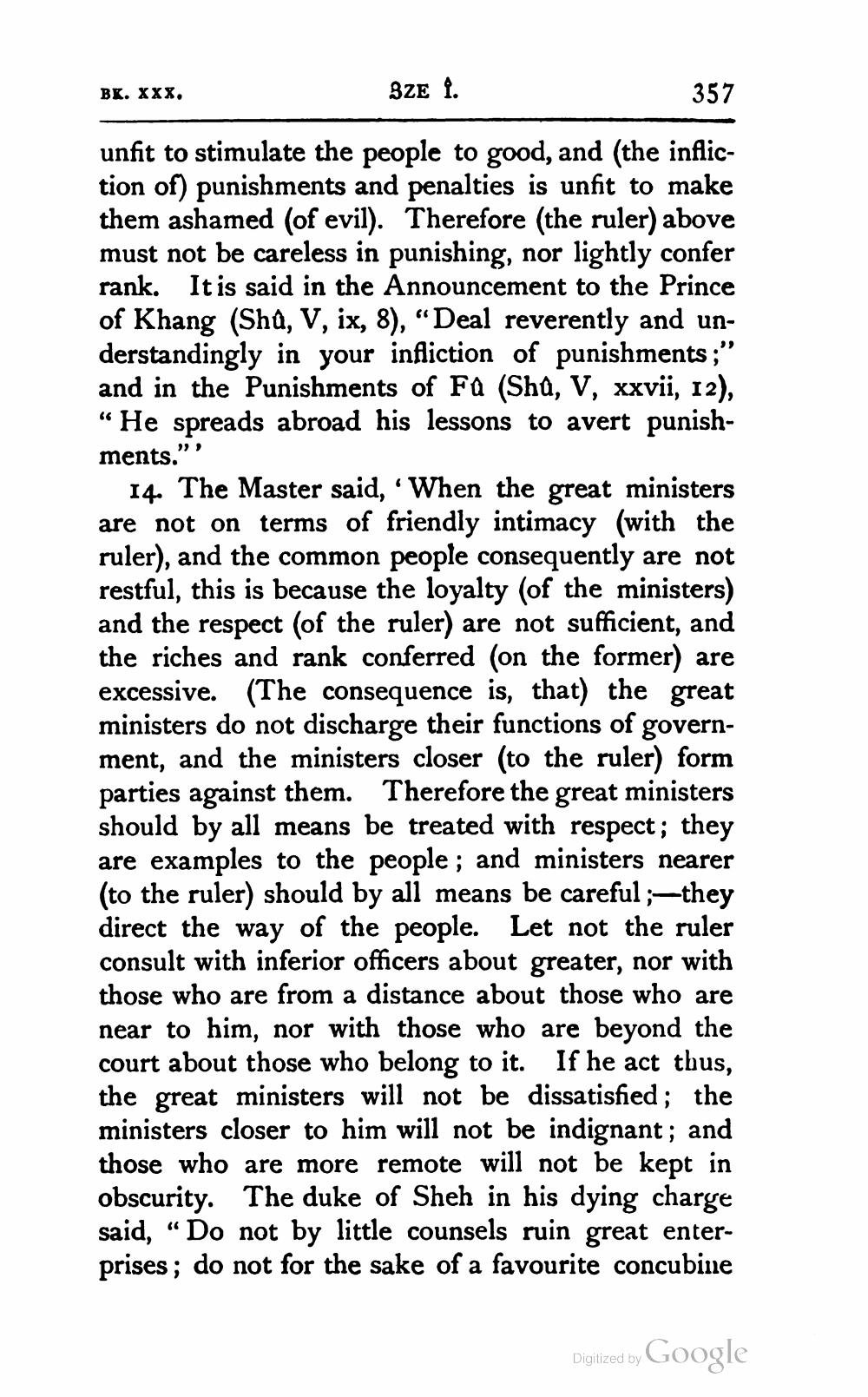________________
BK. Xxx, BZE 1.
357 unfit to stimulate the people to good, and (the infliction of) punishments and penalties is unfit to make them ashamed (of evil). Therefore (the ruler) above must not be careless in punishing, nor lightly confer rank. It is said in the Announcement to the Prince of Khang (Sha, V, ix, 8), “Deal reverently and understandingly in your infliction of punishments;" and in the Punishments of FQ (Shů, V, xxvii, 12), “He spreads abroad his lessons to avert punishments.”
14. The Master said, 'When the great ministers are not on terms of friendly intimacy (with the ruler), and the common people consequently are not restful, this is because the loyalty (of the ministers) and the respect (of the ruler) are not sufficient, and the riches and rank conferred (on the former) are excessive. (The consequence is, that) the great ministers do not discharge their functions of government, and the ministers closer (to the ruler) form parties against them. Therefore the great ministers should by all means be treated with respect; they are examples to the people; and ministers nearer (to the ruler) should by all means be careful ;—they direct the way of the people. Let not the ruler consult with inferior officers about greater, nor with those who are from a distance about those who are near to him, nor with those who are beyond the court about those who belong to it. If he act thus, the great ministers will not be dissatisfied; the ministers closer to him will not be indignant; and those who are more remote will not be kept in obscurity. The duke of Sheh in his dying charge said, “Do not by little counsels ruin great enterprises; do not for the sake of a favourite concubine
Digitized by Google




